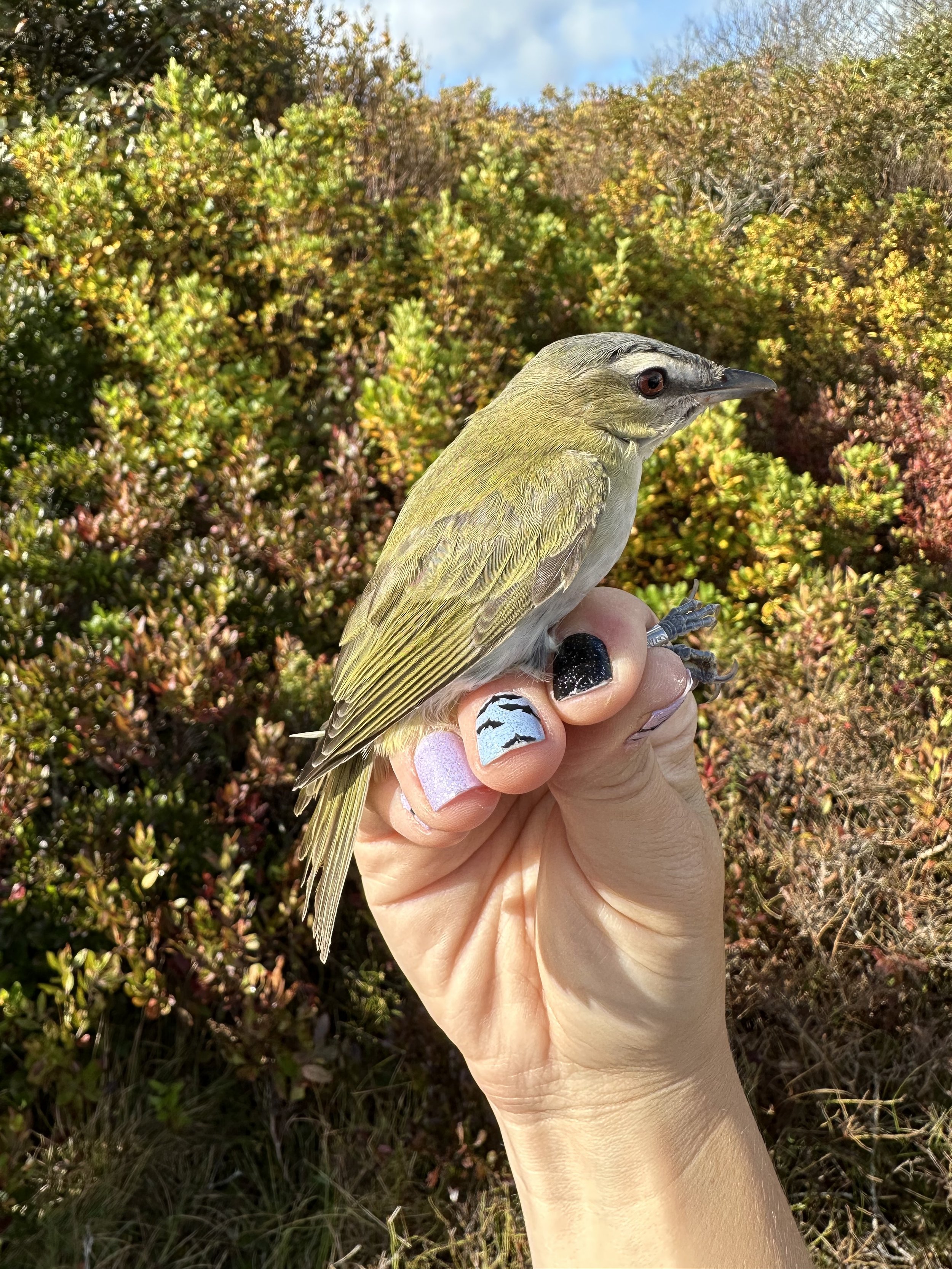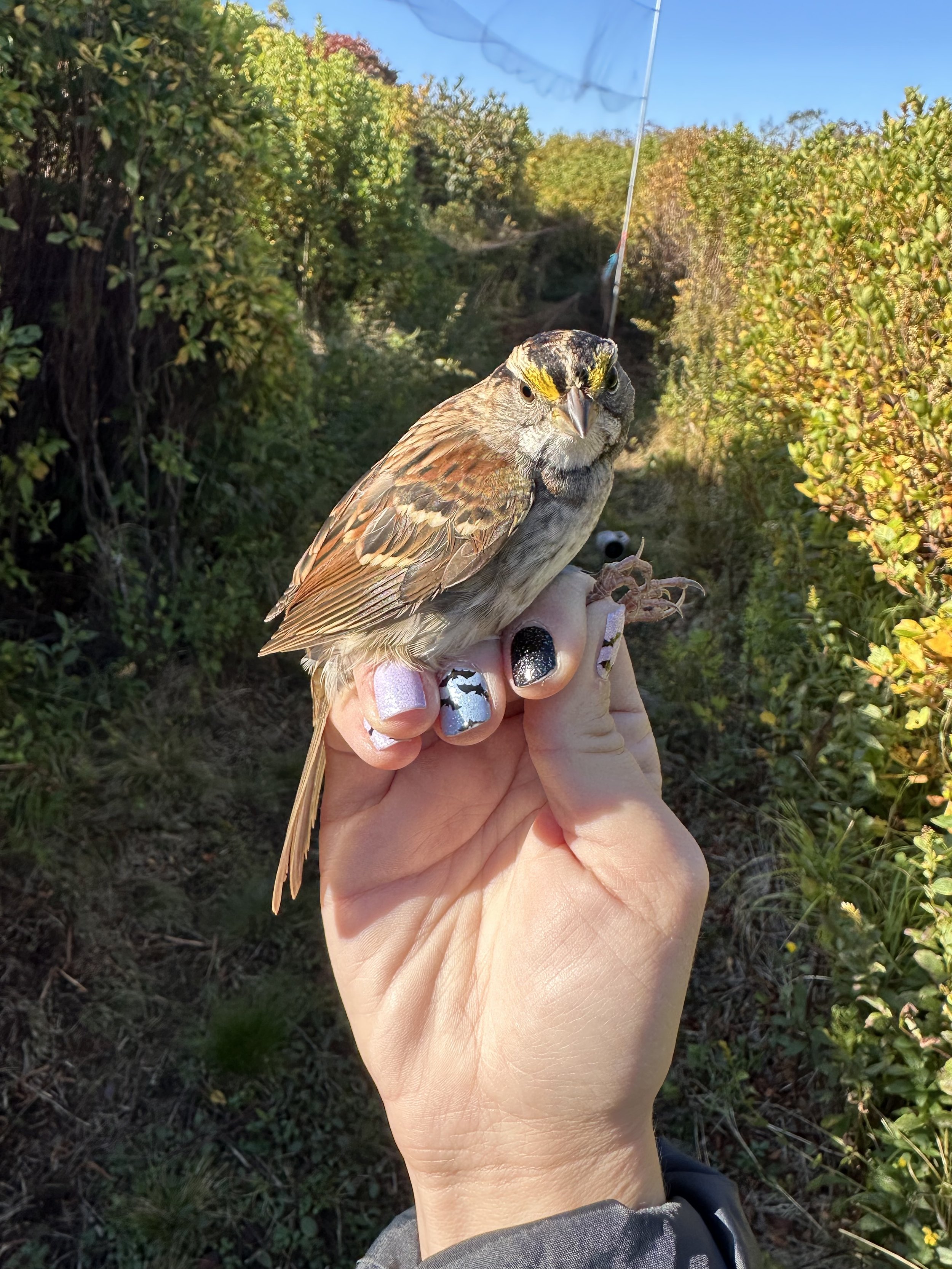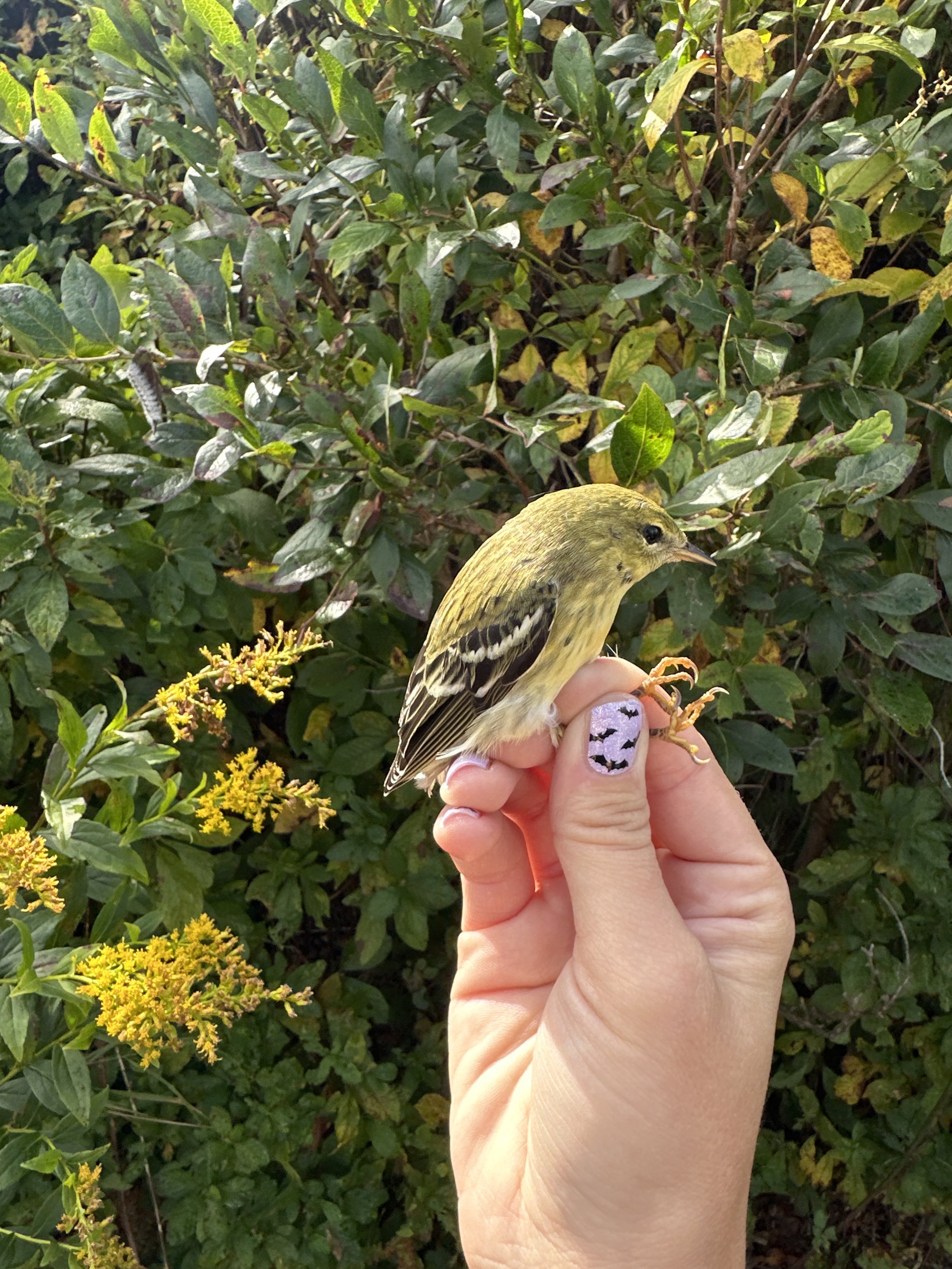
Migratory Songbird Banding Station
Bird banding is a scientific method of placing a uniquely numbered band on a bird's leg to track its movements, behavior, and population dynamics. Researchers capture birds using mist nets, gather data on species, age, and measurements, and release them. This process offers insights into avian ecology and aids conservation by monitoring bird populations and migration patterns.









Why Study Bird Migration?
Our island, located along the Atlantic Flyway, is an important stop for many migratory birds. Some birds rest here to gain fat before continuing their journey. This provides important data on migration patterns, breeding, wintering areas, survival rates, and lifespan.
By placing bands on birds, we can track songbird species that come and go from Nantucket. Understanding these factors is vital for conserving migratory birds, identifying key habitats, and evaluating environmental changes. This information also helps us manage our conservation land effectively.
Visit the Station
Sign up and experience the banding station for yourself. Learn the science behind bird migration, the process of bird banding, and how the information is used for conservation and stewardship.
Weekly
Spring (April-June)
Fall (September-November)
Volunteer
To participate in the migratory bird banding process at the Linda Loring Nature Foundation, please complete the form below.
For any inquiries, contact Conservation Science & Land Steward, Libby Buck at lbuck@llnf.org, our Master Bird Bander in charge.
Report a Band
If you find a bird with a band, be sure to report your sighting to the Bird Banding Lab.
Your observation will significantly contribute to ongoing research efforts, and in return, they will send you valuable information about the bird you discovered.



